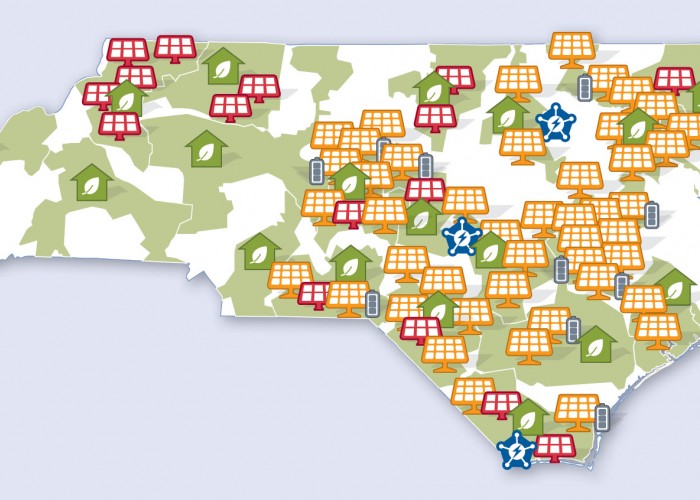Benefits of Using Electricity in New Ways
Learn the criteria for ‘beneficial electrification’ at home
By Charles GuerryIf you’re like most North Carolinians, you’re interested in saving money on energy costs and in doing your part to help the environment. But wouldn’t it be great if you could do both? Well, through a concept called “beneficial electrification,” you can.
This utility industry term — which may be familiar from past issues of Carolina Country — is when electricity is used in place of fossil fuels like propane, natural gas or fuel oil in a way that creates at least one of several potential benefits. Beneficial electrification is being used in all sorts of applications across industries. Two examples are farming, where diesel pumps can be replaced with electric pumps, or other heavy farm equipment can be run on electricity; or industry, where warehouse forklifts can run on rechargeable batteries. In both examples, fuel costs are reduced, and on-site emissions are brought down to zero.
But back to what this concept means for you in your home. There are four potential benefits of switching from fossil fuel to electricity, and for something to truly meet the requirements of being “beneficial electrification,” it has to do at least one of these four things, without harming any of them.
1Save consumers money | As mentioned in the farm and industry examples, using less fuel often saves money. Electric vehicles (EVs) are one example. Most EVs charge at home, resulting in a cost equivalent to paying $1/gallon for gas — pricing most of us haven’t seen for 20 years. And limited moving parts in an EV make for limited required maintenance (oil changes are a thing of the past, for one). Upfront, an EV will likely be more expensive than its gasoline-powered counterpart. But take a look at long-term maintenance and fuel costs to truly get a sense of whether a switch to an EV will be beneficial to you or not. Your electric co-op can help in doing the math.
2Improve the environment | Using the EV example again, if your car were to be electric, you’d obviously bring its tailpipe emissions down to zero. Of course, those emissions are shifted to the source of electricity down the line. The good news here is that the power provided by North Carolina’s electric cooperatives is getting greener all the time. We are now collectively working toward a sustainability goal to achieve net-zero carbon dioxide emissions by 2050.
New renewable sources of power will play a big role, including solar. Our electric co-op, Halifax EMC, recently completed a solar and battery storage project that will generate enough energy to power more than 1,000 homes each year (learn more on page 8).3Increase grid flexibility | This is a trickier concept, but it means creating more interconnected resources for electric co-ops to use in making the power grid run as efficiently as possible (see “Boosting Reliability Through Grid Management,” August 2021, page 10). An example is switching a natural gas or propane water heater to electric. In some cases, you may be able to enroll that electric water heater in an electric co-op demand response program, which would allow the co-op to manage the water heater temporarily during periods of peak demand — when power is needed most across the grid. Heat pumps controlled by smart thermostats create another opportunity for this kind of demand response resource.
4Improve quality of life | This can come in all sorts of forms. Perhaps it means your quiet electric lawn mower doesn’t wake your family on a Saturday morning, or your EV doesn’t stink up the carpool or drive-through line with tailpipe emissions. Electric technology is often more reliable, takes less maintenance and is generally easier to use.
Electrification can be a benefit to your family and to our communities. Please contact your electric co-op to discuss ways you can use electricity in new ways to save money and help us all work toward a better world — and a brighter future.
About the Author
Charles Guerry is executive vice president and general manager for Halifax EMC, headquartered in Enfield.-
Looking toward a brighter future
-
Share this story:





